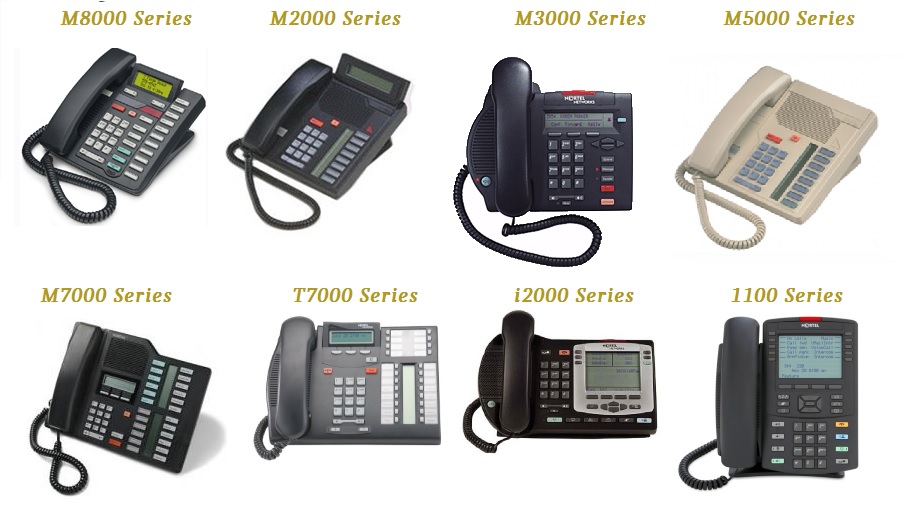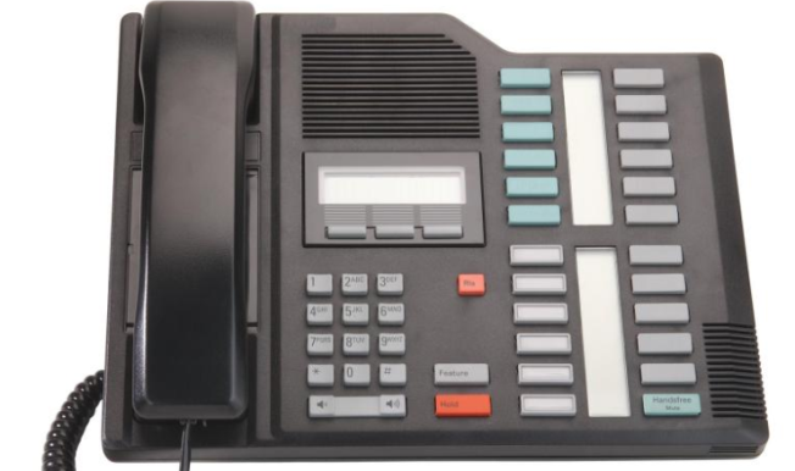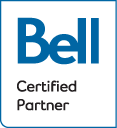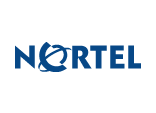Nortel Network Communications, often simply referred to as Nortel, was a multinational telecommunications and networking communications equipment manufacturer headquartered in Mississauga, Canada.
Once one of the the largest telecommunications equipment companies in North America, they have recently ceased operations and were bought out by a number of other corporations.
This article will discuss the history of Nortel, and discuss some of the most common Nortel phone models still on the market.
- The Most Common Nortel Phone Models
- What to do With Your Old Nortel System
- History of Nortel
- More Business Phone Support
If you already have a Nortel telephone system in your office and would like to discuss how you can get more out of it, contact us today!
The Most Common Nortel Phone Models

Though Nortel is no longer the powerhouse telecommunication company they once were, they still have many phone systems on the market.
Here are a few of the more common phone models you’ll still find in many businesses today:
- M8000 Series Analog Telephones
- M2000 Series Digital Telephones
- M3000 Series Digital Telephones
- M5000 Series Digital Telephones
- M7000 Series Digital Telephones
- T7000 Series Digital Telephones
- i2000 Series IP Phones
- 1100 Series IP Phones
If you want more information on these models or have questions about specific Nortel phones systems and how to use them, contact us today!
What to do With Your Old Nortel System

If you or your business still own an older phone system from Nortel, you have a few choices regarding what you can do with that hardware going forward:
1. Keep and Repair the Old System
This option may save you some money because you won’t be purchasing an entirely new system, assuming there are no problems repairing the old hardware.
This is generally the best option for companies who do not use their phone system often, or for companies who only need their system to function temporarily and don’t plan on expanding or upgrading in the future.
2. Purchase a 2nd-Hand Nortel System
If your old Nortel system is giving out, you may still be able to find someone who’ll sell their old Nortel phones to you. The benefit of this would be familiarity: You wouldn’t have to learn how to use any new technology or features.
Like repairing, this option will save you a little money up-front, but in the long run it may actually be more costly, simply because old equipment is less likely to last a long time and you’ll need to replace it again soon. We only recommend going this route if you get a good deal on lots of Nortel equipment that’s still in good shape, and you’re open to the devices failing in the near future.
3. Replace Your Old System
This option incurs the most up-front cost, but will be the most cost-efficient in the long run.
Purchasing a new system gives you new features, a new warranty, more current customer support, and new installs are typically upgradable or modular according to your company’s specific needs.
A new system will also provide the peace of mind that comes with knowing that your purchase with come with many years of service, either from the manufacturer or local comm-tech experts.
4. Replace Old Parts As Needed
The company Avaya purchased Nortel’s enterprise solutions. As a result, they developed telephone systems and handsets that integrate with many models of Nortel’s old products.
This means you can continue to use components of your Nortel system, and slowly replace certain components with Avaya products until eventually the whole system is updated. If you would like to discuss how to go about integrating Avaya with your Nortel phones, give us a call.
The History of Nortel
In 1882, Nortel began as a mechanical department within the Bell Telephone Company of Canada (now known simply as Bell), manufacturing telephone equipment. The department quickly grew from 50 to 200 employees, and a new factory was built in order to increase production. By 1895, this department spun off from the Bell Telephone Company and was given its own name: the Northern Electric and Manufacturing Company.
In 1899, Bell also purchased a cable company named The Wire and Cable Company, which was renamed the Imperial Wire and Cable Company. In 1914, both Northern Electric and Manufacturing and the Imperial Wire and Cable were merged into one and named the Northern Electric Company. From that time until the 1950’s, Northern Electric produced items such as diverse as toasters, kettles, cigar lighters, washing machines and radios.
At this time, AT&T/Western Electric owned shares in Northern Electric, but in 1949 they were forced to sell off their holdings as the result of an antitrust suit. No longer being tied in with Western Electric, AT&T began creating their own line of products, which included its first television sets.
 In 1964, Bell Canada purchased 100 percent of all stakes in Northern Electric and they immediately began focusing on the telecommunications sector. In the late 60’s they began research into fibre optic cables and digitized phone communications. In 1975, they became one of the first groups to sell digital switching systems, made in their Michigan factory location. In 1976, they changed their name once again to Northern Telecom Limited, and again in 1995, when it finally took on the Nortel name. By the late 1990’s Bell Canada Enterprises ceased being the majority shareholder in Nortel. Nortel’s stock reached record highs, and it is estimated that at that time Nortel accounted for more than 1/3 of the total evaluation of all the companies listed on the Toronto Stock Exchange.
In 1964, Bell Canada purchased 100 percent of all stakes in Northern Electric and they immediately began focusing on the telecommunications sector. In the late 60’s they began research into fibre optic cables and digitized phone communications. In 1975, they became one of the first groups to sell digital switching systems, made in their Michigan factory location. In 1976, they changed their name once again to Northern Telecom Limited, and again in 1995, when it finally took on the Nortel name. By the late 1990’s Bell Canada Enterprises ceased being the majority shareholder in Nortel. Nortel’s stock reached record highs, and it is estimated that at that time Nortel accounted for more than 1/3 of the total evaluation of all the companies listed on the Toronto Stock Exchange.
However, between 2000-2002, Nortel’s market capitalization fell from $398 billion to less than $5 billion and their stock plunged from $124 to only $0.47. Nearly two-thirds of their staff were laid off at this time and a new CEO, Frank Dunn, was appointed after the previous CEO, John Roth, retired. In 2004, Dunn, along with financial officer Douglas Beatty and controller Michael Gollogly were fired for financial mismanagement, arrested by the RCMP and charged with fraud.
The following 5 years resulted in a tense financial struggle for Nortel, including having to pay out $575 million and 629 million shares for misleading investors about the strength of the company. After a series of lawsuits and a massive reduction in employees, Nortel filed for protection from creditors in 2009, and were one of the first major technology companies to file for bankruptcy protection during the 2008 global economic downturn.
After deciding to not attempt to emerge from bankruptcy protection, Nortel began seeking buyers for all of their business units, and was bought out by companies such as Ericsson, Avaya, Ciena Corporation, Kapsch, Hitachi, and Genband, finally leading to the end of Nortel.
More Business Phone Support
From Network Telecom
 Network Telecom provides top-notch support services to our customers, 24 hours a day, 365 days a year, and we have been delivering this level of service since 1979.
Network Telecom provides top-notch support services to our customers, 24 hours a day, 365 days a year, and we have been delivering this level of service since 1979.
Our decades of experience working with all aspects of business telecommunication technology, throughout all of the innovations and changes of the information age, have equipped us to become the best possible solution for your business telecom needs. Our goal is to provide unmatched purchase support and technical service.
Network Telecom operates in the Kitchener-Waterloo, Cambridge, and Guelph region. Click here to contact Network Telecom today.
Network Telecom assisted us in moving and upgrading our system when we moved into a new facility. They have been with us while we grew and made additional changes. They are there for us when needed and have provided us with our equipment and program changes. They are a great group to work with.


